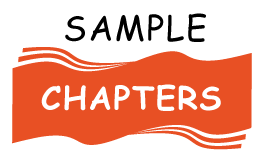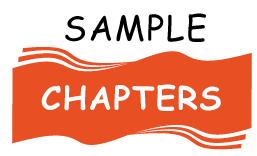Comprehensive Guide to Manuscript Preparation and Submission for Scholarly Authors

Publishing a scholarly book is a significant achievement in an academic career. The process, however, can be intricate and daunting, from crafting a compelling book proposal to navigating the publication and marketing phases. This guide provides a comprehensive overview of the key stages in manuscript preparation and submission, offering practical tips to help you succeed in scholarly publishing.
Book Proposal Tips
1. Crafting a Compelling Book Proposal Writing a scholarly book proposal can be intimidating. Begin by understanding the ten essential steps in creating an effective book proposal. Ensure you include a project description, a target audience analysis, comparable titles, and a detailed chapter outline. Utilize a checklist to ensure all components are covered.
2. Digital Research Pitching Authors often wonder how to pitch their digital research. Highlight the unique aspects of your digital projects and explore opportunities for digital publication at university presses.
3. Including Sample Chapters Decide when and which sample chapters to send with your book proposal. Typically, the introduction and a representative chapter are included. If revising journal articles for inclusion, ensure they are seamlessly integrated into the book's framework.
4. Understanding Comparable Titles Publishers often ask for “comps” or “comparable and competing titles.” Research similar works in your field to position your book effectively in relation to existing literature.
5. Pitching Interdisciplinary Books Finding the right publisher for a scholarly book that spans multiple disciplines can be challenging. Identify presses that publish interdisciplinary works and tailor your proposal to highlight the cross-disciplinary appeal of your book.
6. Key Components of a Book Proposal A scholarly book proposal typically includes a project description, target audience analysis, market analysis, chapter summaries, and sample chapters. Each component serves a specific purpose and audience.
7. Chapter Summaries Also known as an annotated table of contents, chapter summaries are critical in making a case for your book. Clearly outline the main arguments and contributions of each chapter.
8. Making Your Proposal Stand Out Avoid common pitfalls by ensuring clarity, coherence, and a compelling narrative in your book proposal. Highlight the unique contributions and significance of your work.
9. Evaluating Publisher Fit Fit is crucial in the evaluation of a book proposal. Research potential presses to ensure your manuscript aligns with their publishing lists.
10. Peer Feedback on Proposals Not every scholarly writer has access to a developmental editor. Seek feedback from colleagues using structured questions to guide constructive critique.
11. Submitting to Multiple Publishers While submitting the same proposal to multiple publishers, customize each submission to align with the specific press's focus and guidelines.
12. Addressing Current Events Avoid relying too heavily on recent headlines for hooks in your proposal. Instead, emphasize the enduring relevance of your research.
13. Choosing the Right Publisher Different publishers prioritize different types of texts. Decide whether your book is best suited for a university press, a commercial academic press, or a trade press.
14. Maintaining Momentum Balance your book proposal work with other responsibilities using low-stress, manageable tasks that keep your project moving forward.
15. Deciding When to Submit The timing of your proposal submission, whether before or after completing your manuscript, depends on your circumstances and the norms of your target presses.
16. Acknowledging Dissertations If your book manuscript began as a dissertation, acknowledge it appropriately in your proposal, highlighting how the book expands on the dissertation's scope.
17. Project Descriptions A compelling project description is crucial for placing your book with a publisher. Use a flexible template to organize main points and address key questions.
Working with Publishers
1. Publishing Trade Books Many scholars aim to publish trade or crossover books. Understand the differences between scholarly and trade publishing, and what is needed to pitch a trade book.
2. Royalties and Advances Learn how royalty and advance payments are calculated, and consider key points when negotiating your book contract.
3. Managing Out-of-Pocket Costs Publishing an academic book can involve costs for services like indexing, copy editing, and publicity. Plan and budget for these expenses.
4. Understanding Peer Review Each academic press has its peer review process. Familiarize yourself with common practices to prepare for and navigate peer review.
5. Communicating with Editors When engaging with publishers, understand how to communicate effectively, especially in tricky scenarios like withdrawing from a publishing process.
6. Responding to Early Interest If a publisher expresses interest in your book project before your manuscript is ready, know how to engage productively and manage the timeline.
7. Recycling Published Material Determine how much of your manuscript can overlap with previously published articles or chapters, and understand the guidelines for doing so.
8. Navigating Advance Contracts Advance contracts can be complex. Understand what they entail and consider common questions that arise when you receive an offer from a press.
9. Meeting Publishing Deadlines Publishing deadlines can be stressful. Learn which deadlines are critical and how to communicate with your publisher if you're at risk of missing one.
10. Addressing Racism and Inequity Racially minoritized scholars face unique challenges in publishing. Seek editors and publishers who will respect your scholarship and provide equitable support.
11. Post-Submission Process After your manuscript is approved, understand the production stages, from final draft submission to reviewing proofs.
12. Handling Rejection Rejection is a normal part of the publishing process. Have a plan for moving forward if your manuscript is rejected by a publisher.
13. Producing the Final Manuscript Navigate the timeline for final revisions, reader reports, and other steps involved in producing your book's final manuscript.
14. Following Up with Publishers Decide how to follow up on earlier conversations with editors, especially if one publisher responds positively while others have not.
15. Reviewing Contracts When offered a contract, review it carefully. Consider items you may be able to negotiate and key points to keep in mind.
16. Understanding Copy Edits Copyediting can feel intrusive. Learn what copyeditors do and why their role is crucial in polishing your manuscript.
17. Designing a Book Cover Gain insights into the book cover design process and tips for collaborating with designers to create an impactful cover.
18. Engaging with Editors Initial conversations with acquisitions editors can be daunting. Prepare questions and tips to make a positive impression.
19. Securing a Contract Once your proposal is ready, navigate the process of securing a contract, including submitting to multiple presses and choosing the best publisher.
20. Evaluating University Presses Decide whether a university press is the right fit for your book based on your goals and the press's focus.
Writing & Revising Your Book
1. Addressing Similar Works If a book similar to yours is published first, don't panic. Adapt your approach at different stages of the process to differentiate your work.
2. Writing Acknowledgments Crafting acknowledgments can be tricky. Follow guidelines to thank the right people and avoid common pitfalls.
3. Joining Writing Groups Writing groups can provide valuable feedback and community. Learn tips for running an effective group.
4. Revising Manuscripts Use a checklist to address common problems in scholarly manuscripts and ensure your draft is polished for publication.
5. Turning Dissertations into Books Turning your dissertation into a book requires revisiting your research. Understand the process and attend webinars for guidance.
6. Deciding on New Projects After graduation, decide whether to revise your dissertation or start a new book project based on your goals and research interests.
7. Understanding Publishing Goals Define your goals for your scholarly book to align with publishers that can help you achieve them.
8. Recommended Reading Explore books on writing and publishing to gain insights and inspiration for revising your dissertation or manuscript.
9. Easing Publishing Anxiety The publishing process can be daunting. Keep these thoughts in mind to ease your nerves and stay focused after submitting your proposal.
10. Post-Defense Tips After defending your dissertation, take steps to write a strong book manuscript. Find support and resources for first-time authors.
11. Time Management Effective time management is crucial. Use time tracking and categorizing to organize your tasks and improve productivity.
12. Continuing Your Book Project Determine if you want to continue working on your book by evaluating your reasons and goals for writing.
13. Editing Strategies Simplify the editing process by identifying main themes and organizing revisions based on those themes.
14. Introduction vs. Preface Understand the difference between an introduction and a preface and how to use these elements effectively in your book.
15. Manuscript Length Follow guidelines for the length of your manuscript and chapters to meet publishers' expectations.
16. Writing Introductions Writing a strong introduction can be challenging. Use an outline to start or revise your introduction effectively.
Book Promotion & Marketing
1. Promoting Your Book Book promotion can be intimidating. Learn strategies from academic publishers to effectively promote your book.
2. Planning Book Talks Evaluate whether giving book talks or planning a book tour aligns with your goals and how to make these activities effective.
3. Collaborating with Publicity Teams Work with your press's publicity team to ensure your book reaches its intended audience.
4. Building an Author Platform Enhance your author platform to improve your reach and confidence when promoting your work.
Developmental Editing
1. Types of Professional Support Understand the roles of editors, coaches, and consultants in helping you achieve your publishing goals.
2. Finding the Right Editor Evaluate potential developmental editors based on their fit for your project and goals.
3. Transitioning to Editing If considering a career shift from academia to editing, learn tips for a smooth transition and setting yourself up for success.
4. Timing for Editorial Support Consult with a professional editor at the right stages of your manuscript to maximize their impact.
5. Knowing Your Editorial Needs Determine if you need an editor and what type of support you require for your manuscript.
By following these tips and guidelines, scholarly authors can navigate the complexities of manuscript preparation and submission, ultimately achieving their publishing goals. Whether you are crafting a book proposal, revising a manuscript, or promoting your book, this guide offers valuable insights to support your journey.



